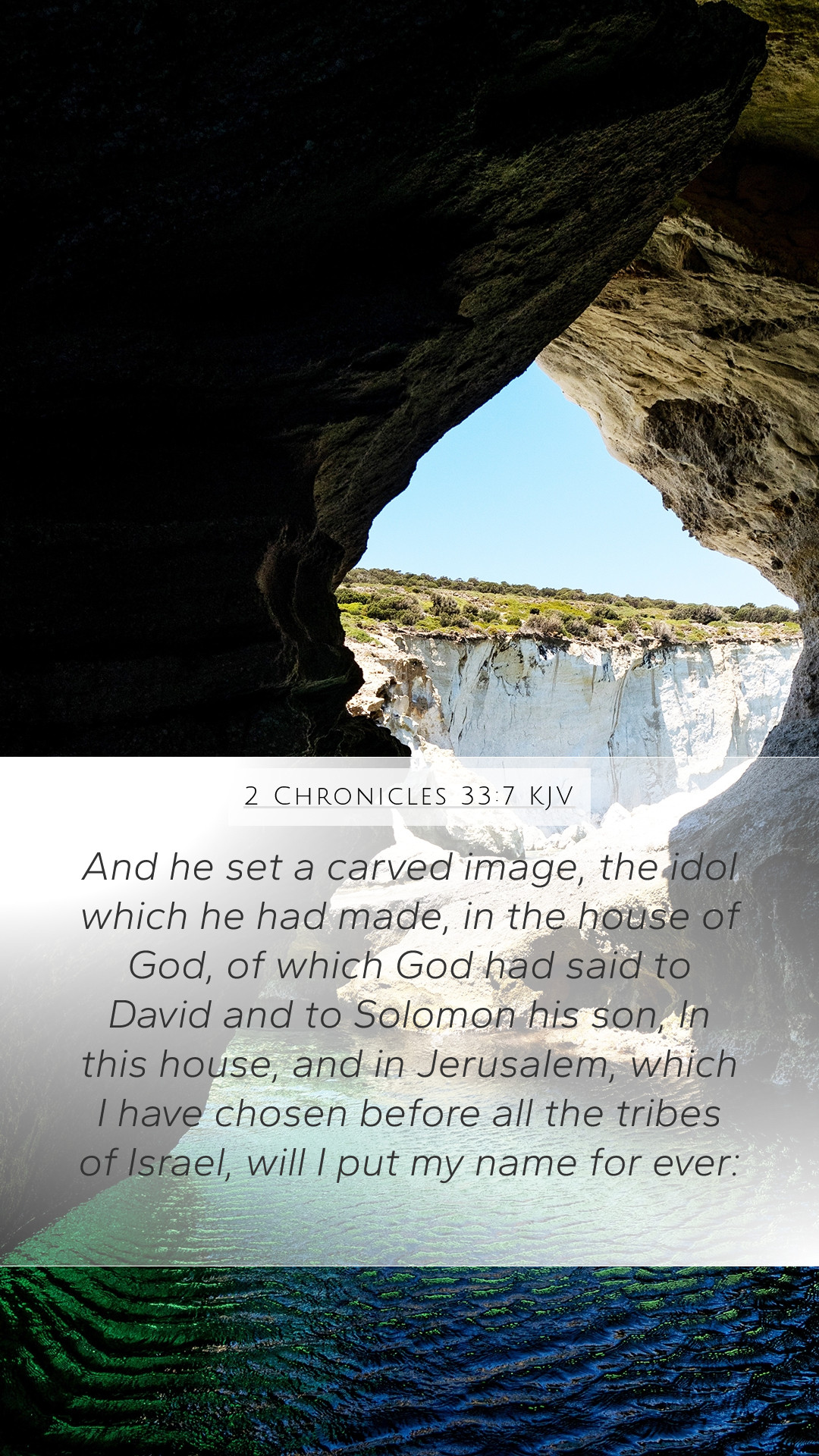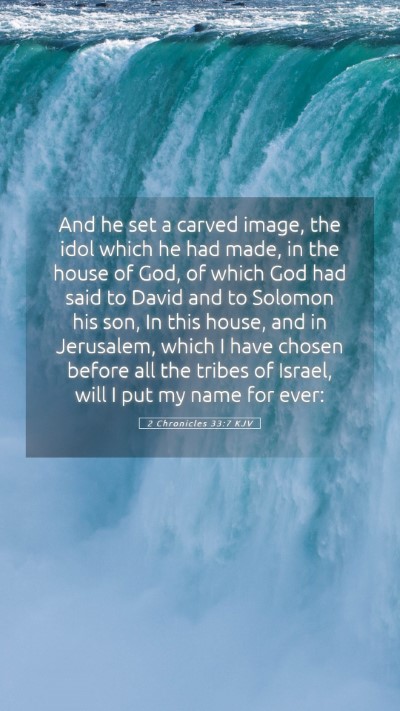Bible Verse Explanation: 2 Chronicles 33:7
Verse Reference: 2 Chronicles 33:7 - "And he set a carved image, the idol which he had made, in the house of God, of which God had said to David and to Solomon his son, 'In this house and in Jerusalem, which I have chosen out of all the tribes of Israel, will I put my name forever.'"
Introduction to the Verse
This passage from 2 Chronicles highlights a critical moment in the reign of King Manasseh of Judah, focusing on his idolatrous actions within the temple of God. The verse serves as a warning against the consequences of turning away from God's commandments and the severe impact of idolatry in the history of Israel.
Summarized Insights from Public Domain Commentaries
-
Matthew Henry's Commentary
Henry emphasizes the profound disrespect displayed by Manasseh when he placed an idol in the temple, which was designated as a holy space for God. This act symbolizes not only a rejection of God's holiness but also an affront to the very nature of divine worship. Henry also notes the context of God’s promise to David and Solomon, which underscores the importance of the temple and the seriousness of its desecration.
-
Albert Barnes' Commentary
Barnes points out that the 'carved image' represents the pinnacle of Manasseh’s rebellion. This action reflects a wider trend in Manasseh's reign, marked by a diverging from the worship of Yahweh. He also highlights the historical backdrop of this event, noting that such singular devotion to idols directly contradicts God's covenant with His people. The placement of the idol within the temple indicates a complete disregard for God's commandments.
-
Adam Clarke's Commentary
Clarke provides an analysis of the significance of the temple and how Manasseh’s idol disrupted the established order of worship. He discusses the consequences of such actions, which not only led to spiritual deterioration but also had repercussions for the nation of Judah as a whole. Clarke underscores the personal and national ramifications of abandoning the worship of the one true God, showing how this relates to the larger narrative of Israel's history.
Understanding Scripture in Context
The historical context of 2 Chronicles 33 is vital for grasping the deeper meanings of this verse. Manasseh's reign is characterized by significant idolatry, and his actions in the temple mark a turning point that leads to God’s judgment on Judah. The temple, established by Solomon with God's covenant presence, is a sanctified space, further intensifying the gravity of Manasseh's sin.
Application of the Verse
This verse serves as a poignant reminder for contemporary readers about the importance of remaining faithful to God's commands and the dangers of idolatry in various forms. The worship of false gods or placing priorities above God can lead to spiritual desolation. Reflecting on this passage encourages believers to ensure their lives and places of worship remain aligned with God’s intentions.
Related Bible Cross References
- 1 Kings 11:33 - Details about the idolatrous practices that led to Israel's downfall.
- 2 Kings 21:7 - Highlights the significance of the image Manasseh set in the temple.
- 2 Chronicles 7:16 - God's promise concerning the temple dedication and His name being present there.
- Isaiah 65:2-3 - God’s condemnation of idolatry and stiff-necked behavior.
Conclusion
In summary, 2 Chronicles 33:7 serves as a crucial verse in understanding the implications of idolatry and the importance of fidelity to God. The insights from established commentaries highlight the depth of rebellion found in Manasseh's actions and the significance of the temple as a symbol of God's presence among His people. Through diligent Bible study, believers can find renewed understanding and application of this verse in their lives.


